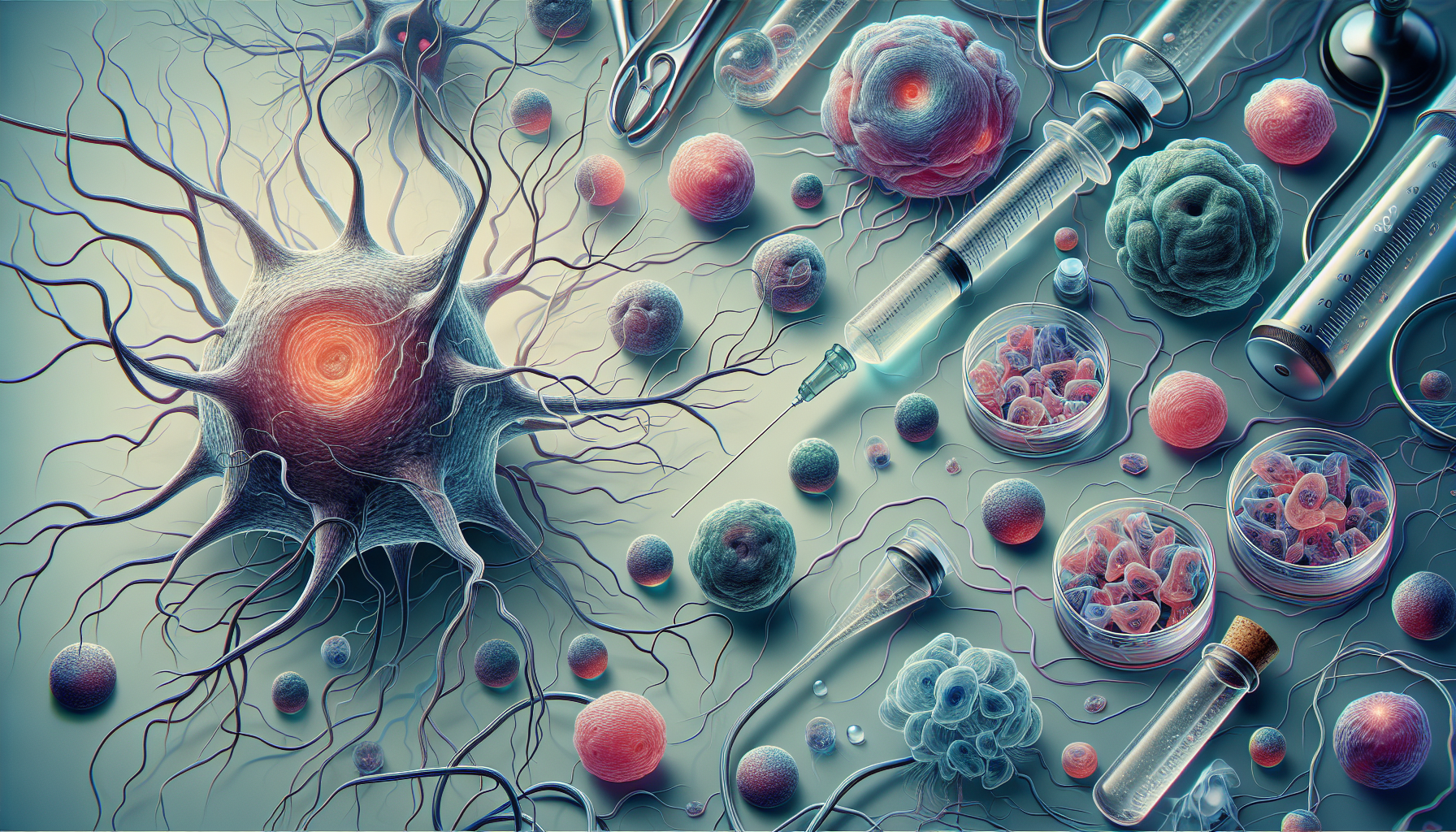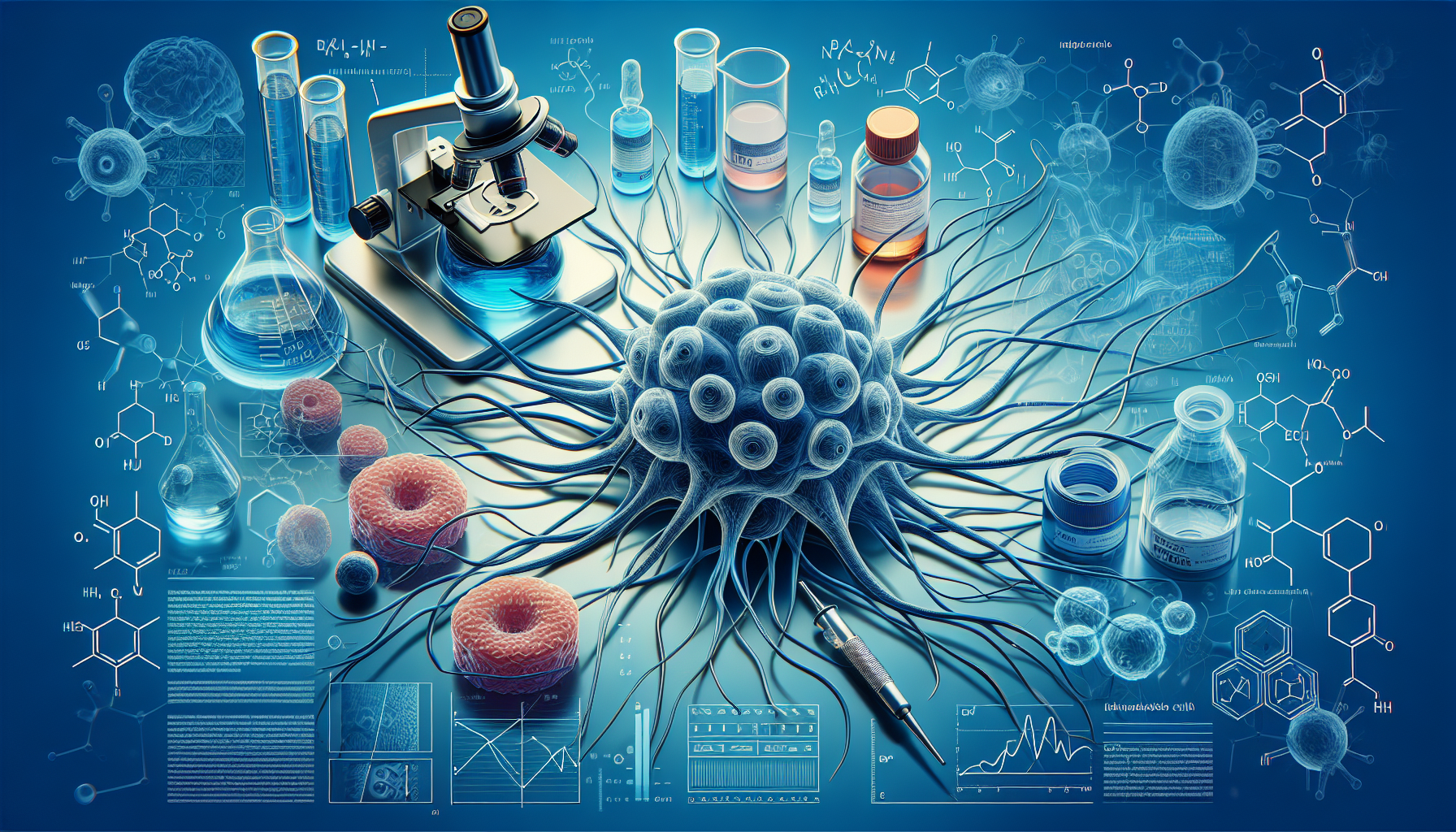Breakthrough Treatment Approved for Genetic Form of ALS in Europe
Key Takeaways
- QALSODY is the first EU-approved treatment targeting the genetic cause of ALS.
- Biogen's commitment to ALS includes ongoing research and patient support.
- Clinical trials show promising trends for QALSODY in treating SOD1-ALS.
Did You Know?
Introduction
The European Commission has recently approved QALSODY® (tofersen) for treating adults with a specific genetic form of amyotrophic lateral sclerosis (ALS), also known as motor neuron disease (MND). This groundbreaking decision marks a significant advancement in the field of neurology, offering new hope to patients battling this devastating condition.
What is SOD1-ALS?
Amyotrophic lateral sclerosis (ALS) is a rare, progressive neurodegenerative disease affecting motor neurons, leading to muscle weakness, loss of function, and, eventually, death. SOD1-ALS is a specific type of ALS caused by mutations in the superoxide dismutase 1 (SOD1) gene. These mutations result in the production of a toxic protein that damages motor neurons.
QALSODY®: A New Chapter in ALS Treatment
QALSODY® (tofersen) is the first treatment in the European Union that directly targets the genetic cause of ALS. Designed by Biogen Inc., the treatment works by binding to the SOD1 mRNA to reduce the production of the harmful SOD1 protein.
The European Commission granted marketing authorization for QALSODY under exceptional circumstances, emphasizing the treatment’s potential benefits given the rarity of the disease. This type of approval is typically given when comprehensive data is hard to gather under usual conditions due to the disease's rarity.
Clinical Trials and Efficacy
The approval of QALSODY was backed by data from a Phase 3 study called VALOR. This study involved 108 patients randomly assigned to receive either QALSODY or a placebo. The primary goal was to observe changes in the ALS Functional Ratings Scale-Revised total score.
The results showed a promising trend that favored tofersen, although they were not statistically significant. Additionally, biomarkers of axonal injury were significantly reduced in patients treated with QALSODY, indicating its potential effectiveness.
Adverse Reactions
Common side effects in patients treated with QALSODY include pain, muscle and joint discomfort, feeling tired, fever, and increased protein or white blood cell counts in the cerebrospinal fluid. It’s crucial for patients and healthcare providers to closely monitor these potential adverse reactions.
Real-World Impact
Biogen has committed to making QALSODY accessible to as many eligible patients as possible through early access programs. Approximately 330 individuals with SOD1-ALS across 18 EU countries have already benefited from this treatment.
The approval also represents a paradigm shift in addressing genetic causes of ALS, offering long-awaited hope to patients and their families.
Continued Research and Development
Biogen is continually investing in ALS research to uncover more effective treatments. They are running another Phase 3 study, ATLAS, to evaluate whether QALSODY can delay the onset of ALS symptoms in individuals with a SOD1 mutation who have not yet shown symptoms.
Future Possibilities
The approval of QALSODY shows the potential for targeted genetic therapies in treating various forms of neurodegenerative diseases. It is a significant step forward, not only for ALS patients but for the broader scientific and medical community.
Biogen's Commitment
For over a decade, Biogen has been at the forefront of ALS research, contributing to a deeper understanding of the disease and developing new treatments. Their continuous efforts in scientific research and clinical trials aim to help those affected by ALS lead better lives.
Conclusion
QALSODY’s approval by the European Commission is a landmark achievement in the fight against ALS. This innovative treatment offers new hope and potential for those suffering from this genetic form of the disease, paving the way for future advancements in neurodegenerative disease research.
References
- European Medicines Agency on QALSODYhttps://www.ema.europa.eu/en/medicines/human/EPAR/qalsody
- Biogen QALSODY Informationhttps://www.biogen.com/en_us/qalsody.html
- ClinicalTrials.gov ATLAS Studyhttps://clinicaltrials.gov/ct2/show/NCT04856982






